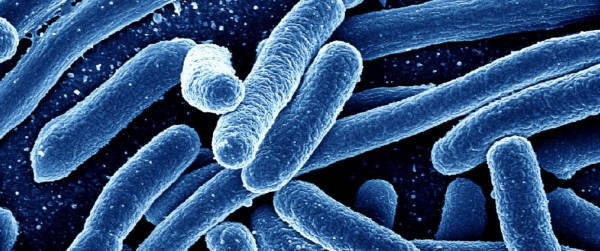China on the verge of a widespread superbug pandemic thanks to spreading MCR-1 gene
02/06/2017 / By David Gutierrez

A gene that confers resistance to colistin, the “antibiotic of last resort,” is alarmingly widespread in China, according to two separate studies published in The Lancet on January 27.
The drug-resistance gene in question, MCR-1 was first identified in China in 2015, in Escherichia coli (more commonly known as E. coli) bacteria in pigs, pork, and a handful of human patients. Since then, the gene has turned up in 30 other countries, including the United States. It renders bacteria immune to one of the few antibiotics that can still be used against multidrug resistant superbugs.
“This is a warning shot about the possible scenario where we don’t have very much left in the armory to treat infections,” said Nigel Brown of Britain’s Microbiology Society.
Gene already spreading to superbugs
In the first study, researchers collected more than 17,000 samples from patients with gut bacteria infections at two hospitals in Zhejiang and Guangdong from 2007 to 2015. Overall, they found that about 1 percent of the infectious bacteria sampled contained the MCR-1 gene. The gene was more common in E. coli, with a frequency of 1.4 percent. Notably, the prevalence of MCR-1 in E. coli increased over the study period.
The researchers found that people with a recent history of antibiotic use were significantly more likely to be infected with MCR-1 positive E. coli. There was no increased risk associated with living near a farm, even though colistin has been widely used in Chinese agriculture. This suggests that MCR-1 is likely spreading between bacteria, rather than MCR-1 positive bacteria merely spreading through asexual reproduction.
100% organic essential oil sets now available for your home and personal care, including Rosemary, Oregano, Eucalyptus, Tea Tree, Clary Sage and more, all 100% organic and laboratory tested for safety. A multitude of uses, from stress reduction to topical first aid. See the complete listing here, and help support this news site.
This mode of transmission is particularly worrisome because it is faster and also makes it more likely that MCR-1 will cross to other strains and species of bacteria, including those already resistant to other antibiotics. This could easily produce a superbug resistant to all known human antibiotics.
This has already started occurring in China, the second study found. In that study, researchers screened more than 2,000 bacterial samples from bloodstream infection patients at 28 Chinese hospitals from 2013 to 2014. They found that about 1.3 percent of E. coli samples were positive for MCR-1; a similar rate to the first study. This indicated that MCR-1 has already spread across China, and may be spreading through contaminated medical equipment.
Significantly, many of the positive samples were of a strain known as ST131, which is already multidrug resistant. E. coli ST131 is a major cause of urinary tract infections worldwide.
“Nightmare bacteria” in our future
Many researchers have blamed the rapid spread of MCR-1 on China’s widespread use of colistin as a growth-promoter for livestock. China finally banned the drug from animal feed in 2016, but it may be too late to stop the gene’s spread. And while MCR-1 remains relatively rare in bacteria that infect humans, the bacterial ability to swap DNA between unrelated species likely makes it only a matter of time before the gene crosses to more common human infectious agents.
“It now looks like there’s potential for the resistance gene to move around and spread between different species of bacteria,” Brown said.
And now that colistin has been approved in China for human use, the spread of colistin-resistance is expected to accelerate.
A preview of what this might look like came in August, when the CDC analyzed samples of the Klebsiella pneumoniae bacteria that had killed a 70-year-old Reno woman from blood poisoning. They found that the bacteria were resistant to all 26 antibiotics approved for use in human beings, including “colistin.” The CDC dubbed the strain a “nightmare bacteria.”
Experts are warning with increasing urgency that unless dramatic changes are made to antibiotic prescribing practices, including curtailing the use of drugs in agriculture, we may soon enter a post-antibiotic era. This would render currently routine medical procedures such as surgery and cancer treatment so unsafe as to be impossible.
Sources for this article include:
Tagged Under: antibiotic resistance, drug resistance, E. coli, superbugs




















